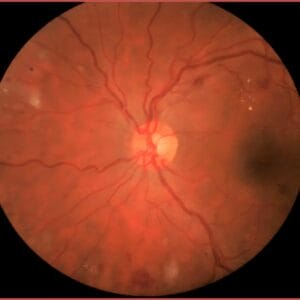April 11, 2023
Doctors are taught that there are two types of inflammation, acute and chronic. Acute inflammation is characterized by short duration and represents the body’s healing response to a sudden insult. Chronic inflammation is characterized by the continuation of the inflammatory response when the cause of the acute insult persists or when the immune system becomes dysregulated after the acute insult.
What Is ‘Inflammaging’?
A third type of inflammation that is associated with aging is called inflammaging. It has been identified and is characterized by sustained inflammation such that it induces chronic inflammation from the beginning. The term inflammaging was first coined in 2000 by Claudio Franceschi1 and stems from the observation that older organisms tend to develop a pro-inflammatory status that is characterized by high levels of pro-inflammatory markers in cells and tissues even in the absence of clinically active diseases.2
Inflammaging is a risk factor for arteriosclerosis and any chronic disease of aging. Since most eye diseases have an inflammatory component, practitioners need to be armed with the latest evidence-based lifestyle recommendations to reduce inflammaging.
Reduce Inflammation to Improve Ocular Health
Targeting inflammation through diet, nutraceuticals, and lifestyle changes is emerging as one of the most impactful ways to influence healthy aging.
In “Chronic Inflammation In the Etiology of Disease Across the Life Span,” a paper published in Nature Medicine in 2019, the authors point out that chronic inflammation and inflammatory diseases are recognized as the most significant cause of death in the world today, with more than 50% of all deaths being attributable to inflammation-related diseases such as ischemic heart disease, stroke, cancer, diabetes mellitus, chronic kidney disease, non-alcoholic fatty liver disease, and autoimmune and neurodegenerative conditions.3 Advising patients on lifestyle interventions to reduce their risk of eye diseases with inflammatory components such as dry eyes, macular degeneration, glaucoma, diabetic retinopathy, cataracts, etc. by reducing inflammation will not only affect ocular health but will also mitigate the risk of systemic diseases.4,5
Reducing Inflammation Through Nutrients: Evidence-Based Strategies
Current research in nutrition is revealing overall dietary patterns of eating that promote health and wellness by reducing inflammation. Of all the diets studied, the Mediterranean Diet (MedDiet) has been researched the most thanks in part to the PREDIMED trial, a multicenter, randomized, primary prevention trial in Spain in persons at high risk for cardiovascular disease (n= 7,447). Three groups were studied: MedDiet supplemented with mixed nuts, MedDiet supplemented with extra virgin olive oil, and the control diet (low fat).
The PREDIMED trial, though not without some controversy, showed a reduction in cardiovascular disease in the MedDiet groups by as much as 30% and sparked an interest in further studies evaluating the health benefits of a MedDiet.6 Other studies such as meta-analyses or systemic reviews of observational studies have reported lower serum concentrations of CRP, IL-6, and TNFα (the three strongest predictors of all-cause mortality risk in the elderly7) among vegetarian and Mediterranean diet eaters compared with omnivores.8,9 MedDiet is characterized by higher intakes of olive oil, legumes, fruits, vegetables, nuts, and fish; moderate intake of dairy products; and low consumption of meat and processed meat products. This combination of dietary habits results in high dietary antioxidant capacity, as well as high intakes of dietary fibers, unsaturated fats, and various healthy phytochemicals.
AREDS and AREDS2 Support the MedDiet
New data from the National Eye Institute’s 10-year, post hoc analysis of the AREDS and AREDS2 trials further supports the benefits of a MedDiet.10 The analysis showed the following:
- Eating a MedDiet, particularly a lot of fish, may be beneficial for those with early or even intermediate age-related macular degeneration (AMD).
- A diet high in fish can reduce the chances of developing late AMD by 65% in patients who also have protective genes.
- In the general AMD population, a high fish diet reduced progression of intermediate AMD, with bilateral large drusen, to geographic atrophy by 31%.
- High adherence to a MedDiet reduced progression from intermediate to late AMD, with geographic atrophy or neovascularization, by 25% to 40%.
What to Eat to Target ‘Inflammaging’
On January 9, 2023, JAMA published the results of a 36-year study of 75,000 women and 44,000 men by Harvard T.H. Chen School of Public Health researchers that looked at overall dietary eating patterns and health.11 According to the study, you can reduce your risk of an early death for any reason by nearly 20%, just by eating more foods from your choice of four healthy eating patterns that included the following:
- Mediterranean diet, which stresses eating fruits, vegetables, whole grains, nuts, legumes, fish, and a high amount of olive oil.
- Healthful plant-based diet, which also focuses on eating more plant products but gives negative points for all animal products and any alcohol.
- The Healthy Eating Index 2015 is closest to the standard American healthy omnivore diet, including meats, fruits, vegetables, low and fat-free dairy, and legumes.
- The Alternative Healthy Eating Index, developed at Harvard, aims specifically at staving off chronic illness and inflammation with healthy oils, a variety of whole grains, and emphasis on plant-based protein, and a limitation on cold cuts and other processed meats.
All four diets were associated with lower risk of premature death from all causes, including cardiovascular disease, cancer, and respiratory disease. Interestingly, however, the researchers found that the Mediterranean Diet and Alternative Healthy Eating Index are associated with a lower risk of death from neurodegenerative disease, specifically.
Targeting inflammaging through promoting overall anti-inflammatory dietary patterns and targeted nutraceuticals is emerging as a way to strongly influence age-related eye and systemic disease.
References
1 Franceschi C et al. Inflamm-aging. An evolutionary perspective on immunosenescence. Ann. NY Acad. Sci 908, 244-254 (2000).
2 Ferrucci L, Fabbri E. Inflammageing: chronic inflammation in aging, cardiovascular disease, and frailty. Nat Rev Cardiol. 2018 September; 15(9): 505-522.
3 Furman D, Campisi J, Verdin E et al. Chronic inflammation in the etiology of disease across the life span. Nature Medicine 25, 1822-1832 (2019).
4 Xu H, Rao N. Grand challenges in ocular inflammatory diseases. Front. Ophthalmol., 17 February 2022, Sec. inflammatory Eye Diseases. Volume 2-2022.
5 Zazzo A, Micera A, Coassin M et al. Inflammaging at ocular surface: clinical and biomolecular analysis in healthy volunteers. Invest Ophthalmol Vis Sci. 2019 Apr 1;60(5):1769-1775.
6 Martínez-González M.A., Salas-Salvadó J., Estruch R., Corella D., Fitó M., Ros E. Predimed Investigators Benefits of the Mediterranean Diet: Insights from the PREDIMED Study. Prog. Cardiovasc. Dis. 2015;58:50–60.
7 Bruunsgaard H., Ladelund S., Pedersen A.N., Schroll M., Jørgensen T., Pedersen B.K. Predicting Death from Tumour Necrosis Factor-Alpha and Interleukin-6 in 80-Year-Old People. Clin. Exp. Immunol. 2003;132:24–31.
8 Haghighatdoost F., Bellissimo N., Totosy de Zepetnek J.O., Rouhani M.H. Association of Vegetarian Diet with Inflammatory Biomarkers: A Systematic Review and Meta-Analysis of Observational Studies. Public Health Nutr. 2017;20:2713–2721.
9 Hart M.J., Torres S.J., McNaughton S.A., Milte C.M. Dietary Patterns and Associations with Biomarkers of Inflammation in Adults: A Systematic Review of Observational Studies. Nutr. J. 2021;20:24. doi: 10.1186/s12937-021-00674-9.
10 Agron E, Mares J, Swarovski A, Chew, E, Keenan D et al. Dietary nutrient intake and progression to late age-related macular degeneration in the age-related eye disease studies 1 and 2. Clinical Trial. Ophthalmology. 2021 Mar;128(3):425-442.
11 Shan Z, Wang F, Li Y, et al. Healthy eating patterns and risk of total cause-specific mortality. JAMA Intern Med. Published online January 9, 2023.





